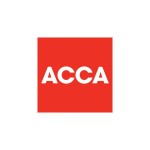Implementing the new European accounting directive

In implementing the New European Accounting Directive, the Member States have choices which give them the chance to improve accounting in their country and those choices should be more evidence-based. This was the main conclusion of a roundtable facilitated by EFAA (European Federation of Accountants and Auditors for SMEs), with the support of ACCA (Association of Chartered Certified Accountants), and NBA (Nederlandse Beroepsorganisatie van Accountants).
Directive 2013/34/EU on the annual financial statements, consolidated financial statements and related reports of certain types of undertakings – the so-called Accounting Directive – was published on 26 June 2013 and entered into force on 20 July 2013. It replaces the existing Fourth and Seventh Company Law Directives that addressed reporting by companies generally and by groups. It represents the culmination of a significant amount of debate on the accounting acquis in Europe and incorporates within it some 100 Member State Options. The implementation period is now approaching its deadline, and Member States are required to translate the Directive into their national law by 20 July 2015.
The implementation phase can be both considered as a challenge but also as an opportunity to get things right while reassessing the current accounting regime in place in the various Member States. The determination of which Member State Options to use raises however some interesting and sometimes complicated questions. To address them, EFAA, with the support of ACCA and NBA organised in Brussels a brainstorming roundtable to discuss, with experts from the Member States, regulators, the European Commission, SME organisations, the banking and the accounting/auditing sectors, what Member State Options should be taken on board and what criteria should be used to determine their inclusion.
Richard Martin, Head of Corporate Reporting at ACCA, who moderated the debate said: ‘The Member State Options will have a big impact on small companies. This is an important moment for accounting in Europe, each Member State has to assess what route to take. Some of the options are old ones, that already existed in the Fourth and Seventh Directives, while others are new, introduced with the new text. However, even if the option is old, the new legislation has triggered a debate on whether we got the law right before, or if there are any amendments that should be made in order to improve the existing regime. There are indeed several changes that Member States will have to consider because of the replacement of the law.’
The debate revealed that some stakeholders are not convinced that Member State Options left within the Accounting Directive would either enhance the ‘level playing field’ or increase comparability across Europe, but that they, on the contrary, would create a challenge for Member States who now must implement the Directive. The discussions also revolved around the need for Member States to consider what the aim is that they wish to pursue. Is it better accounting – and then what does constitute better accounting – or is it seeking reductions in costs and so-called administrative burden above all? It was of value in particular to consider what roles transparency and market efficiency, comparability, relevance, costs versus benefit and international harmonization play in this process, and what should be the appropriate criteria.
Henk Verhoek, Coordinator Financial Reporting, NBA added: ‘Because of the Member State Options, the level of consistency across Europe has been reduced. One of the objectives might be to harmonise the accounting in the EU so that we have one accounting language. Unfortunately, this is not the outcome of the political process that has taken place within the EU. Not all is included in the new Directive. Soft law is yet to be added, and it is an important task for national standard setters to cover other areas, for example, lease and pensions accounting. In order to fulfill the better accounting criteria, information should be valuable to users. Protection of investors’ and creditors’ rights is an important aspect, and quality in accounting stimulates economic growth in the EU and makes access to finance simpler.’
Claus Securs, President of the German Chamber of Public Auditors, illustrated the various consequences of the Micro Directive Member State Option quoting German evidence that ‘the use of the Micro Directive saved €70 per entity.’
Bodo Richardt, EFAA President, concluded: ‘In order to facilitate better accounting in the EU, there is a need for further intelligent discussions, considering other views, and getting feedback based on facts and not political gut feelings. The debate revealed a strong need for more evidence on certain multifaceted issues before making any final decisions. Platforms to discuss complex accounting issues that deliver recommendations are very important because the political decision making process itself is complex. However, rationality and practicality are very important ingredients, especially for SMEs.’
Source: accaglobal



























